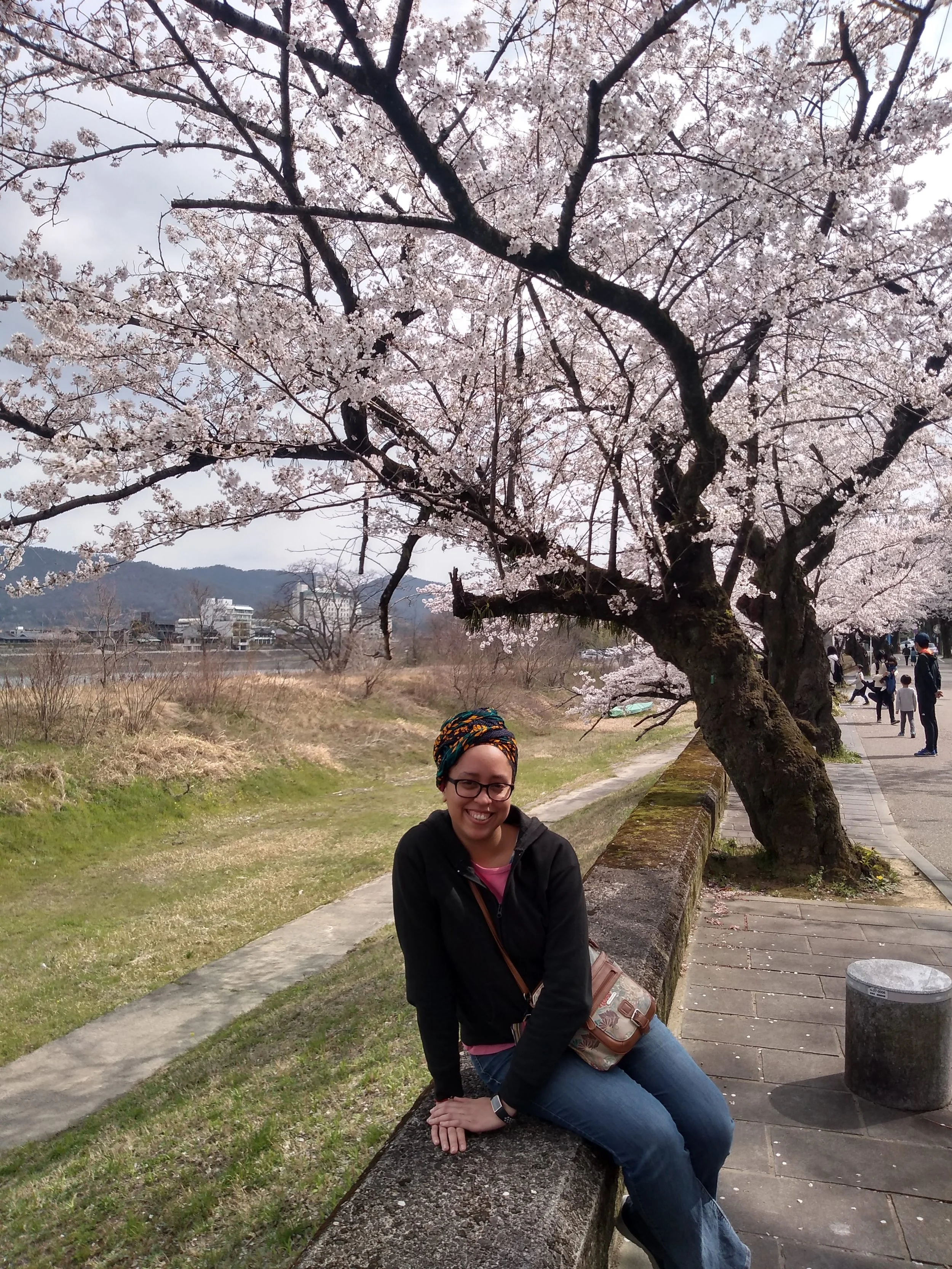
I help BIPOC and QUILTBAG+ speculative fiction writers decolonize their practice, win the publishing game, and become stewards of their communities.
Y’all, does any of this sound familiar?
You were appalled to learn that over 70% of people working in publishing identify as white*.
You’ve been made to feel othered in your creative writing workshops or writing groups.
You were once told that your writing is beautiful, but it doesn’t quite make sense.
You’ve been rejected from multiple writing, editing, and teaching jobs.
You were banned from writing genre fiction for school assignments.
You were told that writing novels doesn’t make “real” money.
* This stat comes from Lee and Low’s Diversity Baseline Survey.

All the above happened to me, and I’m willing to bet it happened to you, too.
I’ve wanted to be a novelist since I was ten years old. I was even identified as gifted in English in fifth grade. I scribbled in any journal I could find, read the occasional fantasy book, and fell in love with all sorts of fantastical, non-Western stories that I watched on television such as anime like Pokemon, Yu-Gi-oh!, and Sailor Moon.
I did this because writing helped me take my thoughts out of my head and encase them between paper for later study and reflection. It helped me cope with my anxiety when cognitive behavioral therapy and other coping strategies couldn’t.

I was really good at writing
until, somehow, I wasn’t.
The moment I got into my first college-level creative writing course, I was made to feel ashamed and othered for wanting to write so-called “genre" fiction. In other words, I could only write navel-gazing literary fiction and nothing else because “that’s just the way things have always been”.
I also read little to no work from other BIPOC authors—especially from those who were like me as a Black, queer, nonbinary, and neurodivergent speculative fiction writer.
In essence, I had not been celebrated or acknowledged as a writer or scholar. I had been disconnected from my literary and cultural heritage as the price of academic excellence and prestige.

So, yeah. I’ve been where you are.
And I’m here to make it right.
Because you’ve worked hard to be as good of a writer as you are right now. You’ve read all the books, written in all those journals, and you’ve made it to the big leagues—an MFA program or a prestigious creative writing workshop, maybe.
And yet, you’ve been forced to sit in silence while your writing is being ripped to shreds. You’re told that you can’t write speculative or genre fiction because it's not sophisticated and beautiful like literary fiction is.
Maybe even after you've graduated from college or that MFA program, you fear that you'll never be able to write the stories you actually want to write. You have to water them down or maybe whitewash it. You can't stand the thought of selling out, but what else can you do? It's their game, so that means you have to play by their rules, right?

Nope. Absolutely not.
After graduating from college, I learned more about mindfulness and meditation as a way to compassionately work with my anxious monkey mind. Then, I lived and worked in Gifu, Japan, for three years as an assistant language teacher where I developed a deeper appreciation for nature, spirituality, and Secular Buddhism.
I also fell in love with coaching because I got to help students tell their stories for their English speech contests and watch them take pride in their lives.
Upon returning to the United States, I not only graduated from UC Riverside’s Palm Desert MFA program with a 4.0 GPA and a POC-coded, queer-normative, epic fantasy novel as my creative thesis. I also reconnected with my literary and cultural heritage through intensive study of the African speculative literary diaspora and earned a perfect score on my graduate lecture.
And, I became an Author Accelerator-certified fiction book coach so that I could help other systemically oppressed storytellers feel seen, heard, and empowered in any space that they’re in.

The writing and publishing game is rigged, and I know how to win it.
Because, here’s the thing about being a systemically oppressed storyteller.
For far too long, both academia and the publishing industry have excluded marginalized voices in speculative fiction from the greater conversations we should be having about them and their work at large. They are punished for pursuing what they love, and they’re made to feel like they have to choose between assimilation or total spiritual annihilation.
I am especially compelled to be a book coach for systemically oppressed storytellers of speculative fiction like myself because I know exactly what it’s like to be disconnected from one’s literary and cultural heritage and to have to pick up the pieces when no one else will. I know what it’s like to be told that I’m a square peg in a round hole even though the system was designed to set me up to fail from the beginning.

Our voices matter.
Our stories matter.
Yet at every turn,
we’re silenced.
Your creative writing teachers in academia have failed you because they refuse to decolonize their pedagogy and wish to maintain the inequitable, Eurocentric status quo.
The publishing industry hasn't been decolonized either because they only want stories that they know they can sell, not just stories from “new” and “emerging” voices” like they say they do.
You deserve to tell the story you want to tell without sacrificing your identity and your creative spark—without selling out and being miserable.
And you deserve to learn how to foster future communities of writers without having to get an MA, MFA, or PhD from an institution that promotes colonization.

I mean, sure.
You could write a “sell-out” book and maybe get rich.
You could also get an MA, an MFA (like I did), and/or a PhD. That’s totally up to you, and I don’t judge people who do.
But would you be happy?
I don’t think you’d be happy.
Because I know how much you love storytelling.
I see how important it is for you to honor your voice.
I understand how much it means for you to help others.
Your brilliance, hard work, and determination—It's in every systemically oppressed storyteller of speculative fiction who has been censored, stifled, and pushed out of a world that wasn’t designed for them in mind.
That’s why through anti-racist pedagogy, equitable feedback methods, mindfulness principles, and recontextualization of creative writing education, I help my clients not only plan, polish, and pitch their novels to literary agents or help them self-publish.
I also help them become more confident within their own communities so that they might become stewards of past, present, and future storytellers when facilitating writing workshops.
So, why not work with someone who sees you for the amazing person you really are?
Someone that's going to embrace you instead of silence you?
Someone that's going to encourage you instead of stifle you?
Someone that's going to empower you instead of segregate you?







